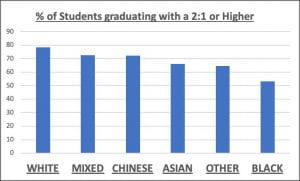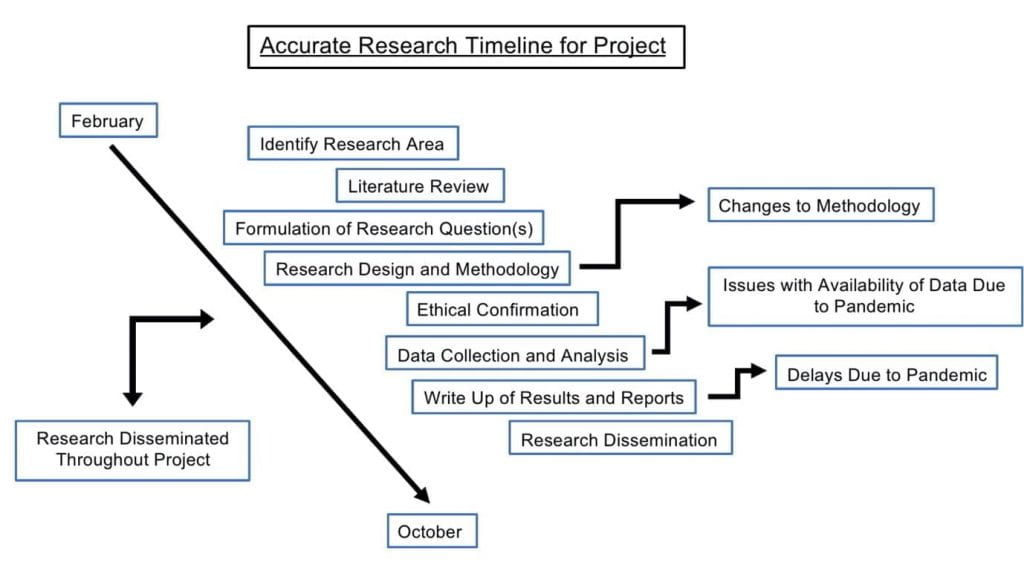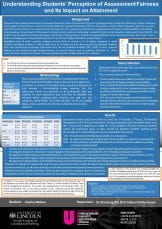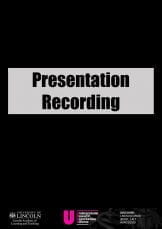By Charles Wilson //
 Over the past few months I have been researching how fair students perceive various assessment types to be and if there is a relationship between this perceived fairness of assessment and nationwide attainment gaps. As I am also working in partnership with the Lincoln Equality in Attainment Project (LEAP), I have looked at these historical attainment gaps for certain groups of students and then put a focus on these groups in my own project, such as disabled students and those who are from minority ethnic backgrounds. Another element of this project that is quite personal to me is the fact that my population consists of undergraduate students from the School of Education (SoE), such as myself. This project will be used to re-examine current assessment policy and practice in the School of Education.
Over the past few months I have been researching how fair students perceive various assessment types to be and if there is a relationship between this perceived fairness of assessment and nationwide attainment gaps. As I am also working in partnership with the Lincoln Equality in Attainment Project (LEAP), I have looked at these historical attainment gaps for certain groups of students and then put a focus on these groups in my own project, such as disabled students and those who are from minority ethnic backgrounds. Another element of this project that is quite personal to me is the fact that my population consists of undergraduate students from the School of Education (SoE), such as myself. This project will be used to re-examine current assessment policy and practice in the School of Education.

HE Attainment Gap, ECU (2017)
This project has been the first piece of fully formed research I have ever conducted and while it has been an incredibly enjoyable and informative experience, it has at times been very challenging. While the COVID-19 pandemic has been unique and hopefully will not affect future UROS projects, it has in some way impacted all areas of my research. The first set of challenges it brought were practical changes to my research methodology, for example with everything moving to online interaction. The sensitive nature of the information required meant that a face to face data collection was preferred, allowing me to answer questions and explain subjects in detail directly to students. By doing an online data collection, I did feel that my response rate was lower, and it is possible that students did not engage with the online survey as much, so some survey answers were missing, short or vague.
While my project has been challenging, it has been an incredible learning experience and has actually taught me so much more than I was able to learn from my research methods modules. I came into this project with a good idea of how to do a research project, the reality was very different and very messy. I was always taught a very linear and neat plan of how a research project flows but my project jumped about in a non-linear way, encountering issues in the data collection, disseminating my research throughout and changing the methodology halfway through the project.

This opportunity has also allowed me to collaborate with my research supervisor who has expertise in research methods and my research field of interest. They have guided me through this project offering advice and support while pushing me to continuously improve my range of skills as an educational researcher. This experience has also enabled me to add to my existing knowledge of student assessment in education, while also allowing me to develop my knowledge of a particular area of interest such as inequalities in higher education attainment. My goal is to continue my passion for higher education research and to study a masters in the subject, with the aim to continue an academic career in higher education research. This UROS experience has been invaluable in helping me progress as a researcher and give me a head start in my future career.
*To view Charles’s research poster and presentation recording, please click on the thumbnails below: 

